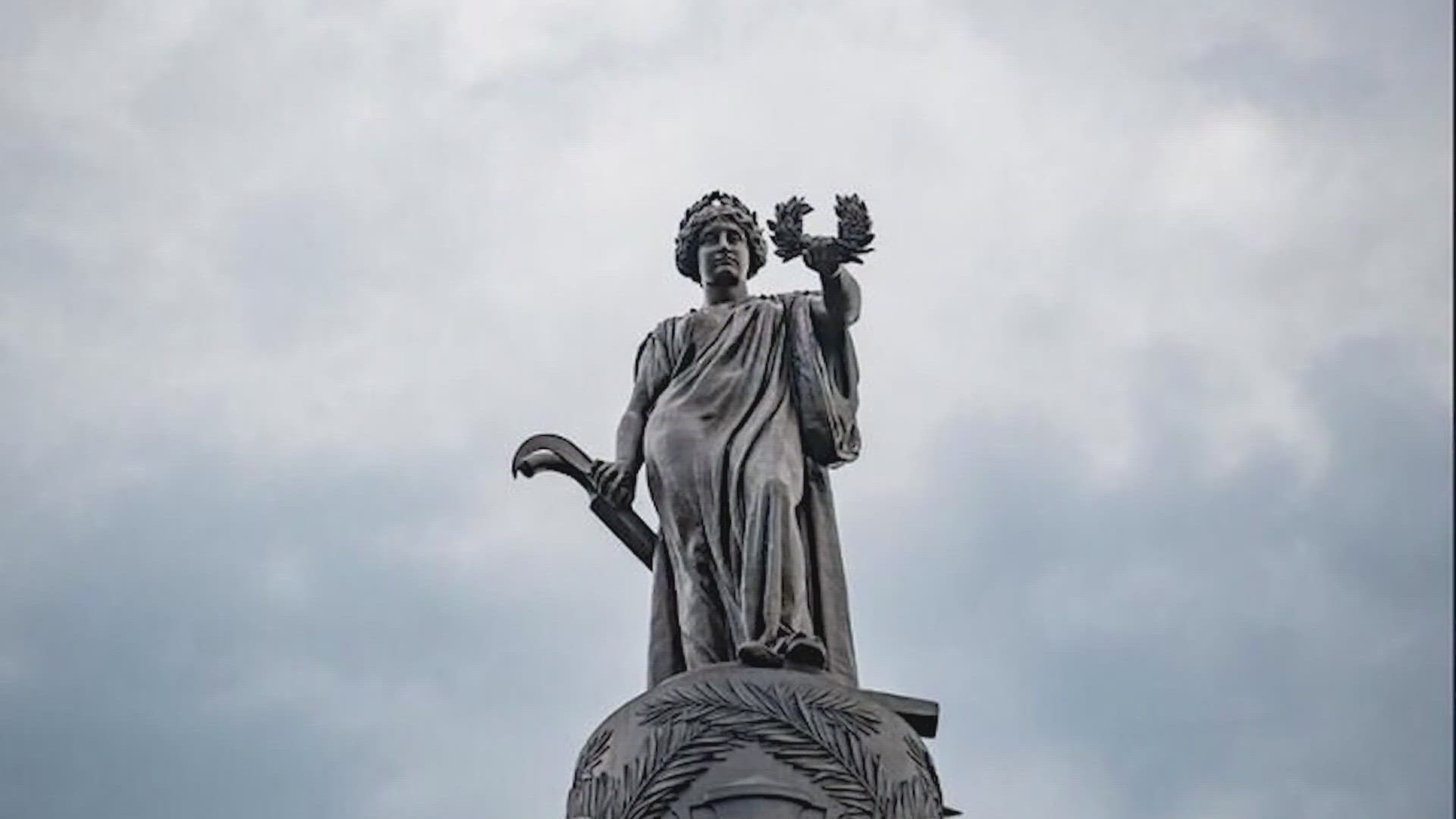ARLINGTON, Va. — A federal judge on Monday issued a temporary restraining order barring removal of a memorial to Confederate soldiers at Arlington National Cemetery.
A group called Defend Arlington, affiliated with a group called Save Southern Heritage Florida, filed a lawsuit Sunday in federal court in Alexandria, Virginia, seeking the restraining order. A hearing has been scheduled for Wednesday.
Work to remove the memorial had begun Monday before the restraining order was issued, but the memorial remains in place on cemetery grounds.
A cemetery spokesperson said Monday that Arlington is complying with the restraining order, but referred all other questions to the Justice Department.
The cemetery had said on Friday that it expected to complete the removal this week. It said the removal was required by Congress, and that it was complying with environmental and historic-preservation regulations.
But the lawsuit accused the Army, which runs the cemetery, of violating regulations in seeking a hasty removal of the memorial.
“The removal will desecrate, damage, and likely destroy the Memorial longstanding at ANC as a grave marker and impede the Memorial’s eligibility for listing on the National Register of Historic Places,” the lawsuit accuses.
The temporary restraining order issued Monday by U.S. District Judge Rossie Alston said that a lawyer for the plaintiffs represented to the court that the work at the memorial involves the disturbance of gravesites.
In a footnote, Alston wrote that he “takes very seriously the representations of officers of the Court and should the representations in this case be untrue or exaggerated the Court may take appropriate sanctions.”
On Friday, the cemetery had said in its statement that “the area around the Memorial will be protected to ensure no impact to the surrounding landscape and grave markers.”
Last week, a federal judge in the District of Columbia dismissed a lawsuit seeking to block removal of the memorial filed by the same plaintiffs. Alston, in his order issued Monday, told the parties to be prepared to discuss how that case affects his decision whether to extend his temporary restraining order beyond Wednesday.
David McCallister, a spokesman for the Florida heritage group, welcomed the judge’s order while acknowledging it is only temporary. He said the current case differs from the one that was dismissed because they now have evidence that the work is being done in a way that disturbs grave sites.
Generally, he said the memorial promotes reconciliation between North and South, and removing it erodes that reconciliation.
The statue, unveiled in 1914, features a bronze woman, crowned with olive leaves, standing on a 32-foot pedestal, and was designed to represent the American South. According to Arlington, the woman holds a laurel wreath, a plow stock and a pruning hook, with a biblical inscription at her feet that says: “They have beat their swords into plough-shares and their spears into pruning hooks.”
Some of the figures also on the statue include a Black woman depicted as “Mammy” holding what is said to be the child of a white officer, and an enslaved man following his owner to war.
Last year an independent commission recommended the memorial be taken down as part of a report to Congress on renaming of military bases and assets that commemorate the Confederacy.
More than 40 House Republicans wrote to Defense Secretary Lloyd Austin recently, arguing that the commission overstepped its authority when it recommended that the monument be removed.
Virginia Gov. Glenn Youngkin disagrees with the decision and plans to move the monument to the New Market Battlefield State Historical Park in the Shenandoah Valley, Youngkin spokeswoman Macaulay Porter said.

